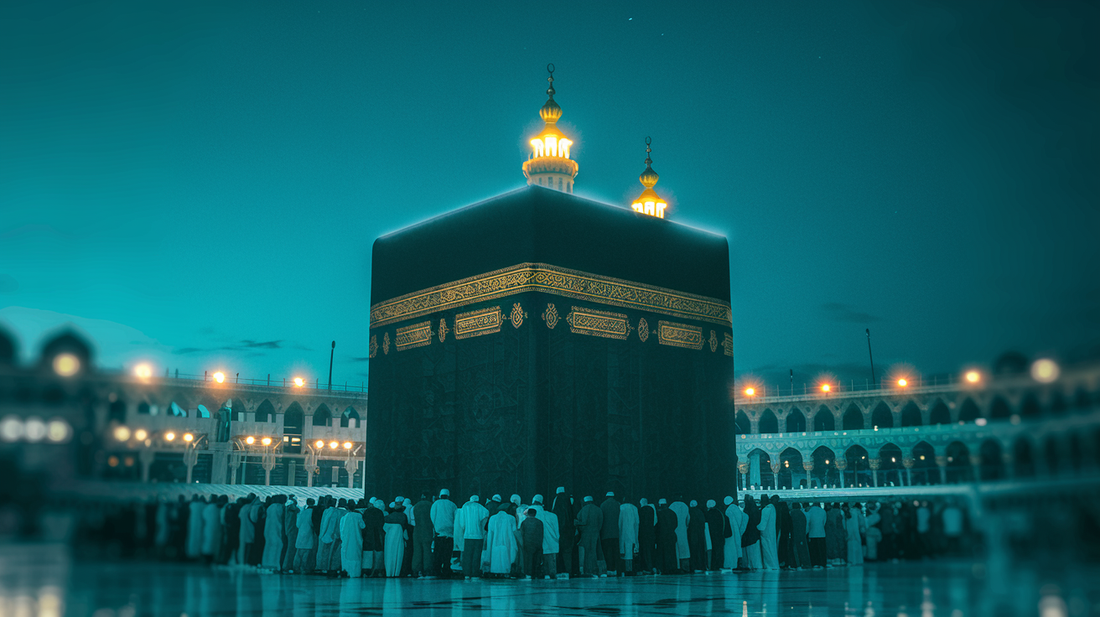
The Sacred Month of Dhul-Hijjah and the Significance of Bakra Eid
Share
The month of Dhul-Hijjah holds immense importance in Islam, being one of the four sacred months in which righteous deeds are highly rewarded. It is the last month of the Islamic lunar calendar and is distinguished by the observance of Hajj and Eid-ul-Adha (Bakra Eid), also known as the Festival of Sacrifice. This blog delves into the spiritual significance of Dhul-Hijjah, the virtues of its first ten days, and the importance of Qurbani during Bakra Eid.
1. The Importance of Dhul-Hijjah in Islam
Dhul-Hijjah is one of the holiest months in Islam, specifically due to the first ten days, which are considered the most blessed days of the year.
1.1. Quranic Reference to Dhul-Hijjah
Allah SWT highlights the significance of these days in the Quran:
"By the dawn and by the ten nights." – Surah Al-Fajr (89:1-2)
Scholars interpret these "ten nights" as referring to the first ten days of Dhul-Hijjah, emphasizing their spiritual importance.
1.2. Hadith on the Virtues of the First Ten Days
The Prophet Muhammad (PBUH) said:
“There are no days in which righteous deeds are more beloved to Allah than these ten days.” – Sahih al-Bukhari (969)
Fasting, reciting Takbeer (Allahu Akbar), Tahleel (La ilaha illallah), and Tahmeed (Alhamdulillah), giving charity, and performing extra prayers are all highly encouraged during this period.
1.3. Bakra Eid: The Festival of Sacrifice
Eid-ul-Adha, celebrated on the 10th of Dhul-Hijjah, marks the culmination of Hajj and commemorates the obedience of Prophet Ibrahim (AS), who was willing to sacrifice his son Ismail (AS) upon Allah’s command. However, Allah replaced Ismail (AS) with a ram, signifying the importance of sacrifice in Islam.
2. Quranic Command for Qurbani
The obligation of sacrifice is mentioned in the Quran:
"So pray to your Lord and sacrifice [to Him alone]." – Surah Al-Kawthar (108:2)
Qurbani is a symbolic act of obedience and gratitude, ensuring that the meat is distributed among the family, relatives, and the less fortunate.
2.1. How to Perform Qurbani and Select the Right Animal
Guidelines for Choosing the Sacrificial Animal
According to Islamic rulings, the animal for Qurbani must meet certain criteria:
- Age Requirement:
- Sheep/goat: At least one year old.
- Cow/buffalo: At least two years old.
- Camel: At least five years old.
- Health Conditions: The animal must be healthy, free from defects such as blindness, illness, broken horns, or missing limbs.
- Ownership: The person performing Qurbani must own the animal at the time of sacrifice.
2.2. Online Qurbani: A Convenient Way to Fulfill the Sunnah
With modern technology, many platforms now offer online Qurbani services to ensure the sacrifice is performed correctly while adhering to Islamic guidelines. This is especially useful for those living in non-Muslim countries or facing logistical challenges.
Islamic Online Qurbani Services
Many Islamic organizations facilitate online Qurbani by slaughtering animals on behalf of individuals and distributing the meat to the needy. Some well-known platforms includes Fastahra Qurbani Services – Offers doorstep delivery of Qurbani meat, ensuring ease and compliance with Islamic laws.
These platforms allow Muslims to perform their Qurbani remotely, ensuring that the meat reaches those in need while fulfilling their religious duty.
3. Acts of Worship During Dhul-Hijjah
Apart from Qurbani, Muslims are encouraged to engage in additional worship during this month:
3.1. Fasting the First Nine Days
Fasting on the first nine days of Dhul-Hijjah, especially on the Day of Arafah (9th Dhul-Hijjah), is highly recommended.
“Fasting on the Day of Arafah expiates the sins of the past year and the coming year.” – Sahih Muslim (1162)
3.2. Increasing Acts of Charity
Dhul-Hijjah is an excellent time to give in charity, as deeds are multiplied in rewards.
3.3. Performing Extra Prayers (Nafl Salah)
Praying Tahajjud, Duha, and other voluntary prayers brings immense rewards during these blessed days.
3.4. Making Constant Dhikr (Remembrance of Allah)
Reciting Allahu Akbar, La ilaha illallah, and Alhamdulillah frequently during these days is highly recommended.
Conclusion
The month of Dhul-Hijjah is one of the most spiritually significant periods in Islam, providing numerous opportunities to seek closeness to Allah. Bakra Eid, or Eid-ul-Adha, teaches us the values of sacrifice, obedience, and generosity. Whether performing Hajj, offering Qurbani, or engaging in extra worship, Muslims worldwide should take advantage of this sacred time to enhance their faith and good deeds.
For those unable to perform physical Qurbani, online platforms offer a seamless and Shariah-compliant way to fulfill this obligation, ensuring the spirit of Eid is preserved while supporting those in need.
May Allah accept our sacrifices, prayers, and good deeds during this blessed month! Ameen.

